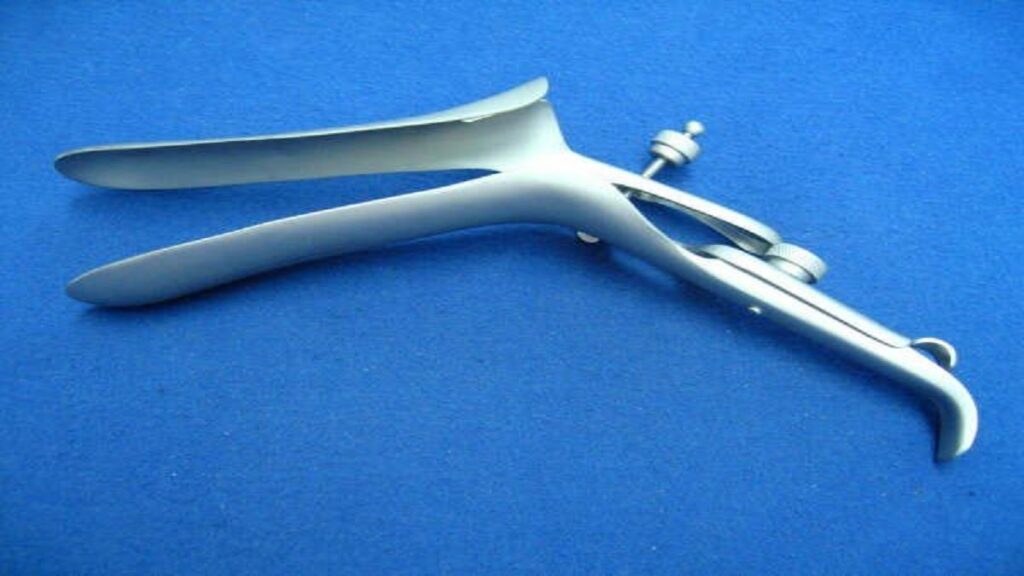
Information from a post-use questionnaire was used to assess the OfficeSPEC disposable vaginal speculum’s acceptability, effectiveness, and efficiency in clinical, hospital, and harsh situations. Results: Usability data analysis revealed that the OfficeSPEC speculum had favorable overall usability in deployed scenarios, scoring 4.6/5 for efficacy, 4.5/5 for efficiency, and 4.6/5 for acceptability. The overall ranks for plastic were 3.4, 4.2 (p 0.001), and 4.5 (p 0.001), respectively. The OfficeSPEC cost analysis identified the disposable speculum as a cost-effective substitute with an annual cost of $129,200, as opposed to conventional metal ($209,100) and plastic ($319,175). Conclusion: The OfficeSPEC speculum was found to be a workable, feasible option in all situations, particularly in the forward-deployed scenario, after being assessed within a usability framework.
Introduction of Disposable Vaginal Speculum in UK
An essential tool for any medical professional performing ophthalmological examinations is the Disposable Vaginal Speculum in UK. Speculums come in a wide range of sizes, are constructed from a variety of materials, and can include add-ons like suction ports and light attachments. The decision to choose a particular speculum is typically driven by provider preference, but it may also be determined by availability or institutional policy.
Gynecological exams are performed by military physicians
Gynecological exams are performed by military physicians in much the same way as those performed by their civilian counterparts, although the setting in which they are performed can differ and frequently provide difficulties. Gynecological examinations might be performed in a temporary room or clinic, and power for lightning sources was frequently dependent on a generator. Hence, equipment is frequently determined by availability in a harsh environment, such as a military deployment or humanitarian mission.
This study aimed to evaluate the possible military uses of the OfficeSPEC speculum (OBP Medical, Lawrence, Massachusetts) (Fig. 1). We specifically want to assess the OfficeSPEC vaginal speculum’s usage in military treatment facilities and forward deployed areas using three criteria: effectiveness, efficiency, and acceptability1,2. The study was authorized by the Institutional Review Board of the Walter Reed Army Medical Center (WRAMC).
Techniques and supplies
To evaluate the OfficeSPEC disposable, self-lighted speculum’s usability and military relevance, we created a prospective observational pilot study. The OfficeSPEC is a single-use, disposable vaginal speculum in UK that has been certified by the Food and Drug Administration for business use.
OBP Medical supplied approximately 150 speculums to the WRAMC Department of OB/GYN for this study. The speculums were shared among the WRAMC staff physicians and OB/GYN nurse practitioners, residents, and other professionals. The postage was fully covered by OBP Medical, and the specimens were utilized at the provider’s discretion after being sent to deployed doctors in two boxes. Gynecological examinations were carried out in battle theaters by deployed medical personnel. Patient interactions took place in Level 2 and 3 echelon medical facilities as well as battalion aid stations.
Healthcare professionals could utilize speculums:
At WRAMC, healthcare professionals could utilize speculums in the clinic, for inpatient floor consultations, or in the emergency room. The OfficeSPEC speculum, conventional plastic speculums, or classic metal speculums were available to providers who conducted standard vaginal examinations. Each provider was free to choose the speculum. Gynecological pelvic examination best practices were unaffected.
Providers answered 12 questions on an anonymous post utilization survey (Table I). From Strongly Agree to Strongly Disagree, participants were asked to rate their comments on a continuous scale from 0 to 5. Also, healthcare professionals noted the location of the examination: a clinic, hospital ward, emergency room, a simulated pelvic model, or a deployed scenario. The same questionnaire was filled out by the deployed providers. Effectiveness, Efficiency, and Acceptability were the three categories into which the data were separated (Table I).
Results:
78 questionnaires were received in total. Staff doctors, residents, and nurse practitioners were among the survey’s providers. The authors were not involved in this research. Providers at WRAMC had access to the OfficeSPEC speculum, and 31 interactions were assessed in a strict deployment setting. The demographic breakdown of all 78 surveys are shown in Table II; 40% were conducted in a deployed environment, and 60% in a hospital or clinic. 38% of those were residents, and 62% were employees. 55% lacked prior job experience in austere (deployed) locations, compared to 45% who did.
Cost Evaluation:
Although the military health care program doesn’t follow the same business model as the private sector, expenses are nevertheless incurred and must be closely monitored. Within the constraints of the military healthcare system, a cost study was done (Table III). The unit cost of each speculum, the typical daily usage of metal speculums at Walter Reed GYN clinic, and the cost of necessary consumables such as disposable plastic sleeves, light sources, and light bulbs were amortized over a metal speculum’s assumed lifespan of five years. It is challenging to estimate the cost of sterilizing merely Disposable Vaginal Speculum in UK at big tertiary hospitals like Walter Reed; as a result, we used public data from the United Kingdom for sterilization expenses. 2 Once more, the equipment cost is amortized for five years.